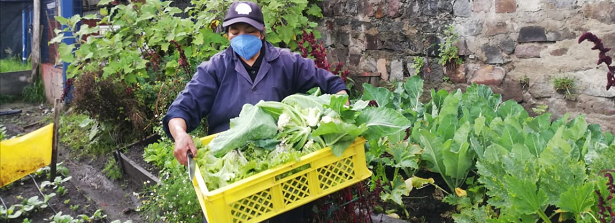
RUAF, together with FAO, UNEP, ICLEI, RUAF and Rikolto, organizes a webinar “Cities and Covid-19: Food access for vulnerable communities in practice” on May 15, 2020, sharing insights from a worldwide survey by FAO and dive into the experience of 3 cities: New York City (USA), Kampala (Uganda) and Quito (Ecuador).
Please note that the webinar will start at 15:00 and finish by 16:30. In preparation of the webinar, the organization kindly asks participants to fill out a short survey “How are cities maintaining access to safe and nutritious food for vulnerable populations in times of Covid-19?” The webinar, co-organised by FAO, UNEP, ICLEI, RUAF and Rikolto, will share insights from a worldwide survey by FAO and dive into the experience of 3 cities: New York City (USA), Kampala (Uganda) and Quito (Ecuador).
- In New York City, where 1.2 million New Yorkers faced food insecurity before the pandemic, a new plan “Feeding New York” has been issued to protect the security of the city’s supply chain, in collaboration with the private sector and civil society.
- In Kampala, city authorities have put in place a contactless home delivery system to deliver essential commodities targeting 1.5 million citizens to reduce congestion in markets during the lockdown. In addition, measures were taken to prevent price hikes in the city’s wholesale and retail markets.
- In Quito, the city’s response to the food challenges arising from Covid-19 is rooted in the systemic perspective of the “City Region Food System” approach that aims to build resilience at different scales of the food system.
Programme
Speakers:
- Jamie Morrison, Strategic Programme Leader, Food Systems Programme, FAO
- Kate MacKenzie, Director of the Mayor’s Office of Food Policy, New York City
- Esau Galukande, Deputy Director Production and Marketing, Kampala Capital City Authority
- David Jácome Polit, Metropolitan Director of Resilience, Municipality of Quito
Moderator: Charlotte Flechet, International Food Smart Cities Coordinator, Rikolto
The seminar is primarily aimed at urban decision-makers, but the webinar is open to anyone with an interest in inclusive and sustainable food systems.
- This event has passed.

